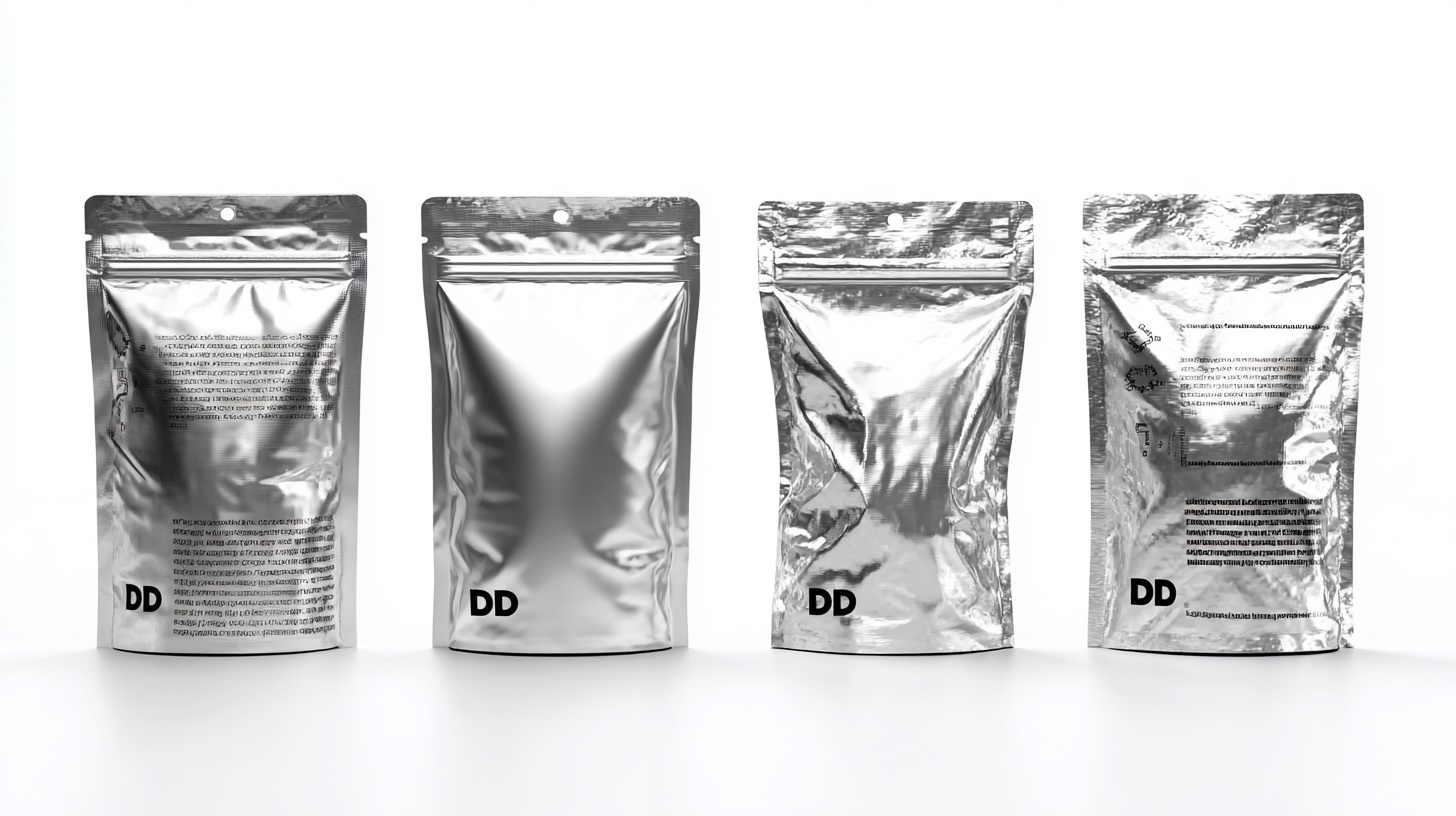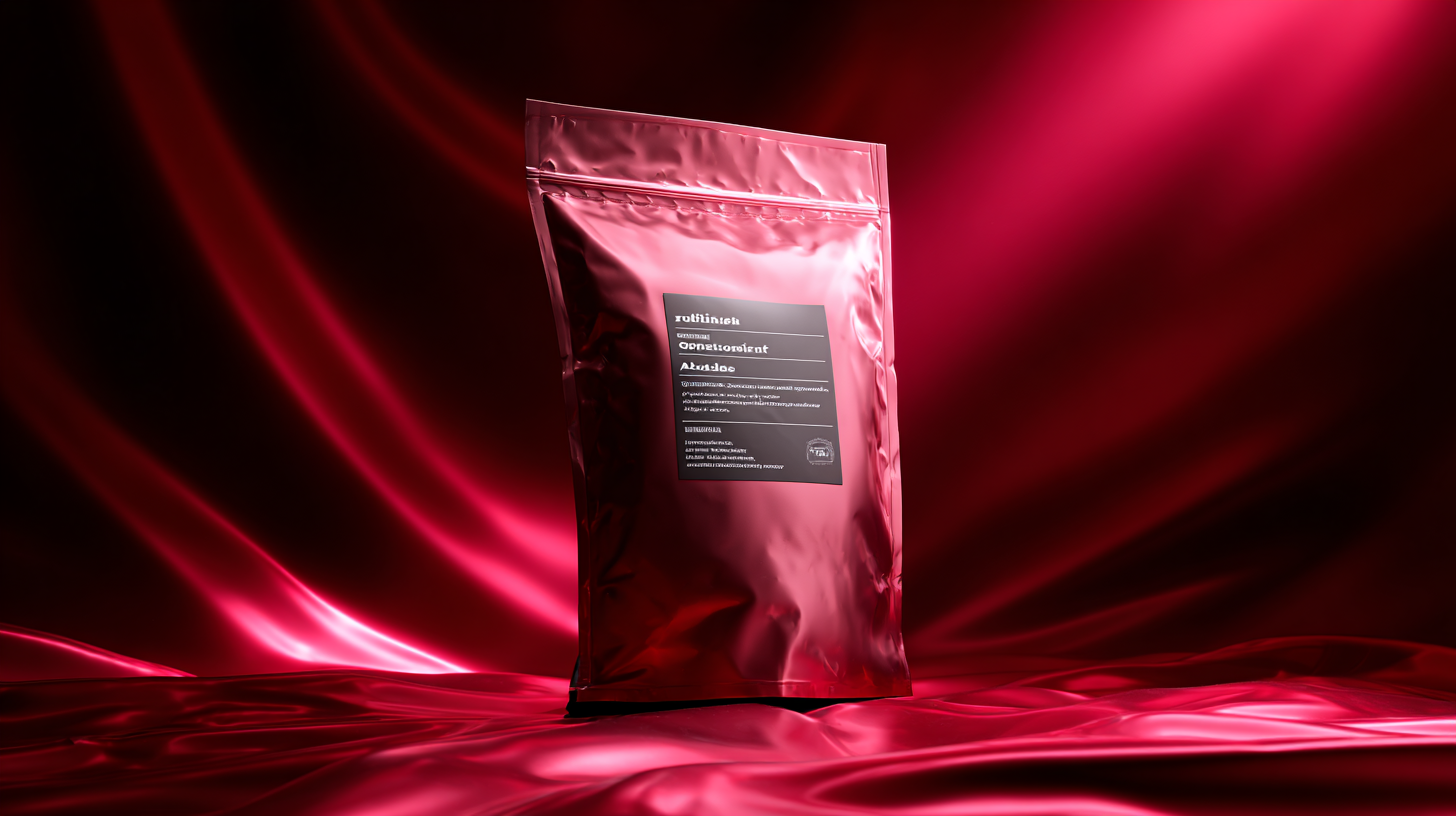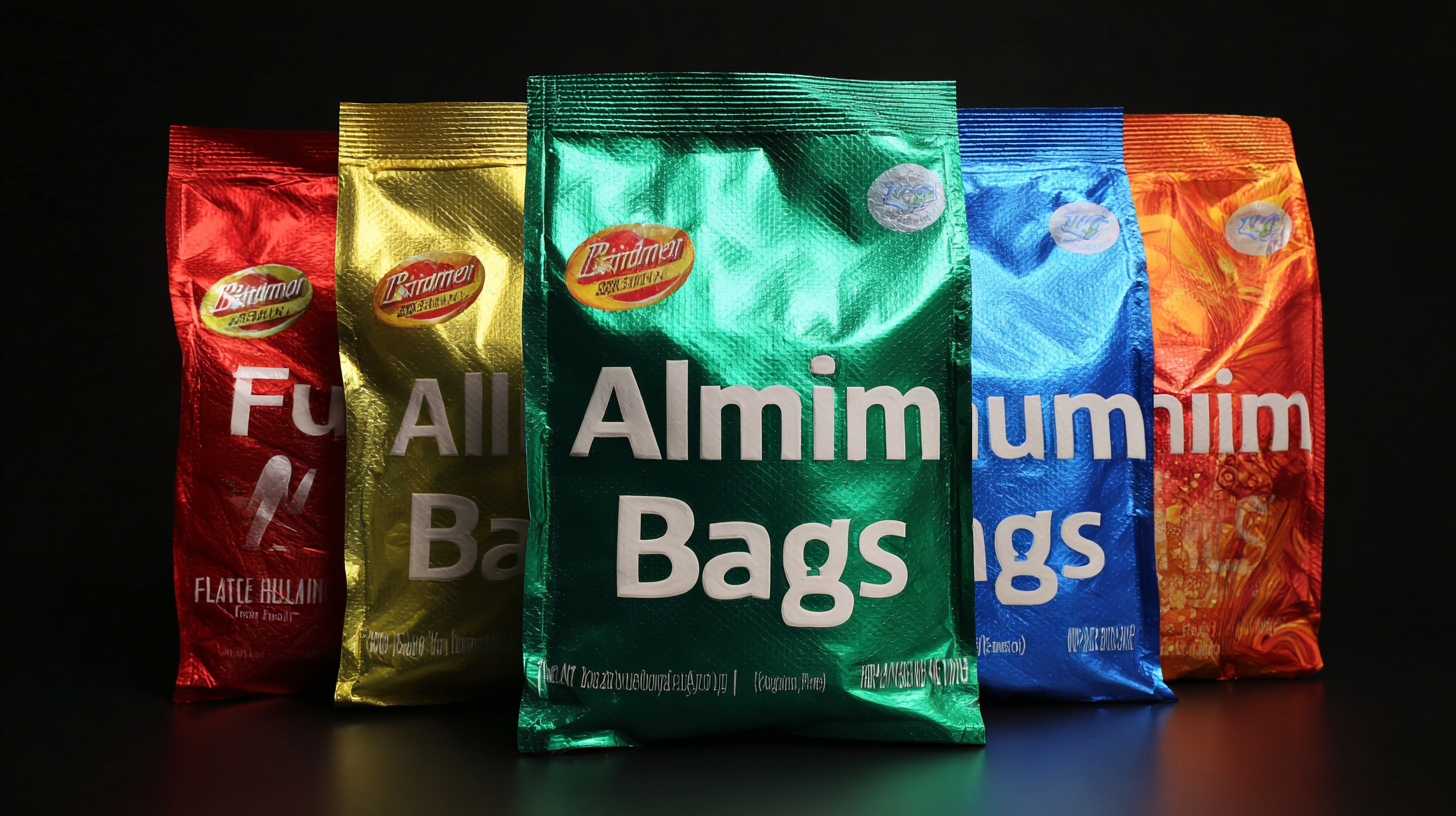In recent years, the packaging industry has witnessed a significant shift towards the use of Aluminum Foil Bags due to their exceptional versatility and protective qualities. According to a report from MarketsandMarkets, the global flexible packaging market is projected to reach USD 300 billion by 2025, with aluminum foil bags playing a crucial role in this growth owing to their barrier properties against moisture, light, and oxygen. The need for sustainable and efficient packaging solutions has further propelled the demand for these bags across various sectors, including food, pharmaceuticals, and consumer goods. With their ability to preserve freshness and extend shelf life, Aluminum Foil Bags are not only ideal for perishable items but also provide an eco-friendly alternative, aligning with modern consumer preferences for recyclable packaging. This blog will explore the myriad benefits and applications of Aluminum Foil Bags, comparing different types and highlighting their relevance in today's market.

When it comes to packaging, aluminum foil bags have gained significant traction over traditional methods due to their superior barrier properties. According to a report by Zion Market Research, the global demand for aluminum foil packaging is expected to reach approximately $35 billion by 2024, demonstrating a strong preference for flexibly designed packaging. This preference is largely because aluminum foil bags offer protection against moisture, light, and oxygen, which can compromise product quality. For example, food products packaged in aluminum foil bags can see a shelf life increase of up to 50% compared to those in standard plastic packaging.
Tips for businesses considering a switch to aluminum foil bags include evaluating the specific needs of your products. If you’re packaging perishable items or sensitive materials, opt for bags that provide additional heat sealing or laminated finishes. Furthermore, be mindful of the environmental impact. While aluminum bags can be less environmentally friendly if not recycled properly, many manufacturers now offer recyclable options that align with sustainability goals. This dual focus on product longevity and environmental responsibility is crucial for modern consumers.
In addition to their practical benefits, aluminum foil bags are lightweight and space-efficient, making transportation more cost-effective. A study from the Flexible Packaging Association underscores that companies can reduce shipping costs by as much as 20% when switching to more efficient packaging solutions. This not only lowers operational costs but also enhances the overall sustainability of products through reduced carbon footprints in logistics.
The demand for aluminum foil bags is on the rise, driven by their versatility and effectiveness in preserving product quality. According to recent market analyses, the global aluminum foil packaging market is anticipated to expand significantly, growing from $14.54 billion in 2024 to an impressive $22.24 billion by 2032, which reflects a robust CAGR of 5.45%. This surging demand is largely attributed to the numerous benefits offered by aluminum foil bags, including their ability to provide an airtight seal, protect against moisture and light, and extend shelf life, making them ideal for various products, from food items to pharmaceuticals.
Additionally, insights from the Cold Form Blister Packaging Market highlight the growing reliance on aluminum materials, alongside oriented-polyamide and PVC. As businesses continue to prioritize sustainability and product safety, aluminum foil bags are becoming increasingly popular in packaging solutions. This trend underscores a broader shift within the packaging industry towards materials that not only meet consumer expectations for quality and performance but also contribute to eco-friendly practices. With the market for aluminum foil bags expected to flourish, industry stakeholders are poised to benefit from this upward trajectory.

Aluminum foil bags are increasingly recognized for their versatility, making them ideal for a wide range of products, particularly in the food and pharmaceutical industries. These bags provide a barrier against moisture, light, and air, extending the shelf life of perishable items. For food packaging, aluminum foil bags can keep snacks, herbs, and meats fresh for longer durations, ensuring that flavors and nutritional values are preserved. In pharmaceuticals, they safeguard medications from environmental factors, maintaining efficacy until the expiration date.

When selecting aluminum foil bags, it's essential to consider the specific requirements of your product. Tip: Always check for bags with a multi-layer construction, as they offer better protection against external elements. Additionally, ensure that the bags meet food safety regulations if they are intended for food products.
Moreover, aluminum foil bags are not just limited to food and medicines. Tip: Get creative with their use by considering them for items such as electronics or cosmetics, where moisture protection is vital. Opt for resealable options for added convenience, making it easy for consumers to use and store products effectively. This adaptability continues to drive the popularity of aluminum foil bags across various sectors.
Aluminum foil bags have gained significant attention for their versatility in packaging various products, from food items to medical supplies. However, with a growing focus on sustainability, it’s crucial to examine the environmental impact of these bags and the recycling practices surrounding them. Aluminum is a highly recyclable material, which means that when consumers dispose of used aluminum foil bags properly, they can be repurposed into new products, significantly reducing landfill waste.
Tip: Always check for local recycling guidelines to ensure that your aluminum foil bags are being recycled correctly. Many areas have facilities equipped to handle this process, making it easy for consumers to contribute to sustainability efforts.
Moreover, the energy required to recycle aluminum is considerably lower than that needed to produce new aluminum from raw materials. This means that by choosing aluminum foil bags, businesses can not only benefit from the durability and barrier properties of the material but also support an eco-friendly lifecycle.
Tip: Consider integrating aluminum foil bags into your packaging options with clear labeling that encourages proper disposal and recycling. This not only helps the environment but also enhances your brand image as a responsible, sustainable company.
| Product Type | Key Benefits | Sustainability Factor | Recyclability | Environmental Impact |
|---|---|---|---|---|
| Food Packaging | Moisture and odor protection | Made from recyclable materials | Highly recyclable | Reduces food waste |
| Cosmetics Packaging | Lightweight and durable | Eco-friendly production | Can be recycled with aluminum | Minimizes carbon footprint |
| Electronics Packaging | Anti-static properties | Recyclable content | Easily recyclable | Reduces electronic waste |
| Pharmaceutical Packaging | Protection from light and moisture | Recyclable post-consumer | Recyclability potential | Promotes safe disposal |
When considering cost-effectiveness in packaging, aluminum foil bags present a sustainable alternative to traditional plastic options. Their versatility allows them to cater to a range of products, maintaining freshness and extending shelf life while significantly reducing waste. Recent advancements highlight the importance of environmental considerations, especially in the context of plastic food packaging, which is increasingly scrutinized for its ecological impact and the challenges it poses to marine ecosystems.
Aluminum foil bags not only outperform conventional plastic in terms of resource efficiency but also offer a biodegradable solution that aligns with growing consumer demand for eco-friendly products. While the recycling of multilayer plastic packaging faces obstacles, aluminum foil bags contribute to a more straightforward recycling process, promoting circularity in the packaging lifecycle. As businesses pivot toward greener solutions, the shift from synthetic materials to natural alternatives, including the use of plant extracts for nanoparticle synthesis, underscores a broader commitment to sustainability that can be mirrored in packaging choices as well.
This chart illustrates the cost per unit for aluminum foil bags compared to alternative packaging options. As shown, aluminum foil bags are competitively priced, offering a versatile and effective solution for various products.
